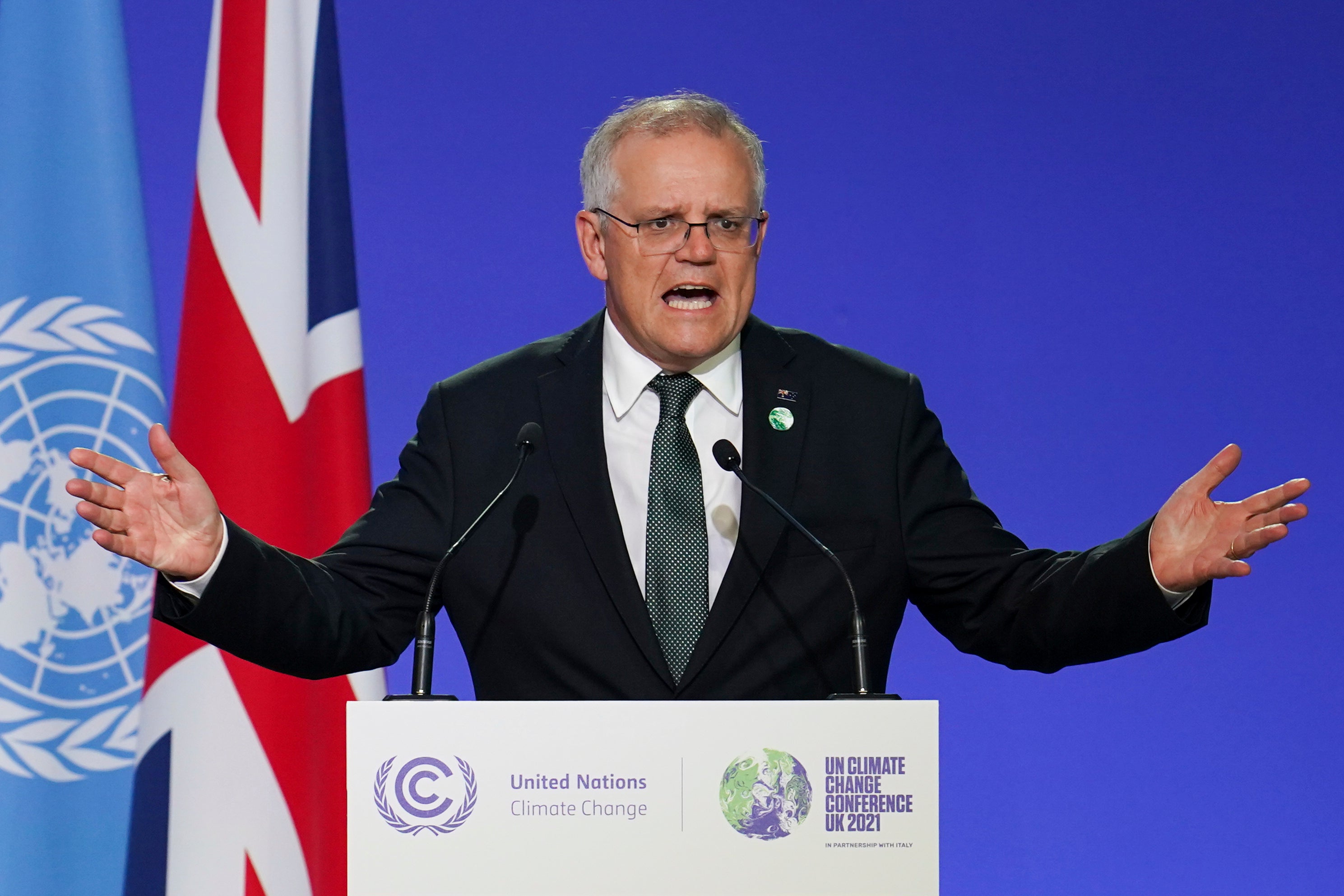Australia introduces law that would allow some organisations to ‘discriminate’ based on faith
LGBT+ activists fear the bill could end up overriding existing protections for vulnerable groups

A purported religious anti-discrimination bill introduced in Australia’s parliament will protect people from “cancel culture,” claimed prime minister Scott Morrison.
Mr Morrison on Thursday introduced the controversial Religious Discrimination Bill, which will allow faith-based organisations to prioritise the hiring and enrolment of people from their faith.
The bill, tabled just months before next year’s election, is seen as an attempt to fetch votes from religious citizens by Mr Morrison, who is a devout Pentecostal Christian.
Mr Morrison, while introducing the bill to the lower house of the parliament, said it would protect those who expressed their religious faith outside of the workplace as long as it did not cause financial damage to their employer.
“People should not be cancelled or persecuted or vilified because their beliefs are different from someone else’s,” he said.
“Australians shouldn’t have to worry about looking over their shoulder, fearful of offending an anonymous person on Twitter or transgressing against political or social zeitgeists,” the prime minister added.
Religious freedom has been in the spotlight ever since Australia legalised same-sex marriage in 2017.
In 2018, Mr Morrison pledged to reform the country’s existing Sex Discrimination Act that allows schools to expel students or teachers for being homosexual.
LGBT+ groups in Australia have attacked the new bill, saying employers would discriminate against gay students and teachers using religion.
Anna Brown, the chief executive of nonprofit Equality Australia, said in a statement on Thursday that the new bill will override existing protections for vulnerable people and not spare people of faith either.
“It will wind back hard-fought protections for women, people with disability, LGBTIQ+ people, and even people of faith,” Ms Brown said.
“What constitutes discrimination today, will be lawful tomorrow, allowing people to say harmful, insulting and demeaning things. Things like a medical worker telling a person living with HIV that AIDS is a punishment from God, or a person living with disability that their disability is caused by the devil,” she added.
“In broad terms, it overrides existing protections for vulnerable groups, it compromises access to judgement-free health care and inclusive workplaces,” she earlier told ABC Radio.
The group, in its statement, said it has challenged Mr Morrison’s assertion that the bill would do nothing to have a harmful impact on LGBT+ people in religious schools.
It claimed that it was already legal “to fire, expel or otherwise discriminate against LGBT students and staff.”
“The Religious Discrimination Bill will do nothing to change this, instead bolstering the ability of religious schools to refuse to hire staff that affirm or support them,” Ms Brown pointed out in the statement.
The bill is expected to be put to vote in the lower house next week. However, it is unlikely that it will pass into law before the elections as the parliament is in its last sitting fortnight for the year.
The prime minister could call an election before it resumes in 2022 as the elections must take place by May 2022.
The bill is expected to be reviewed before being voted on in the upper house senate sometime in 2022-23.
Additional reporting by agencies
Join our commenting forum
Join thought-provoking conversations, follow other Independent readers and see their replies
Comments
Bookmark popover
Removed from bookmarks